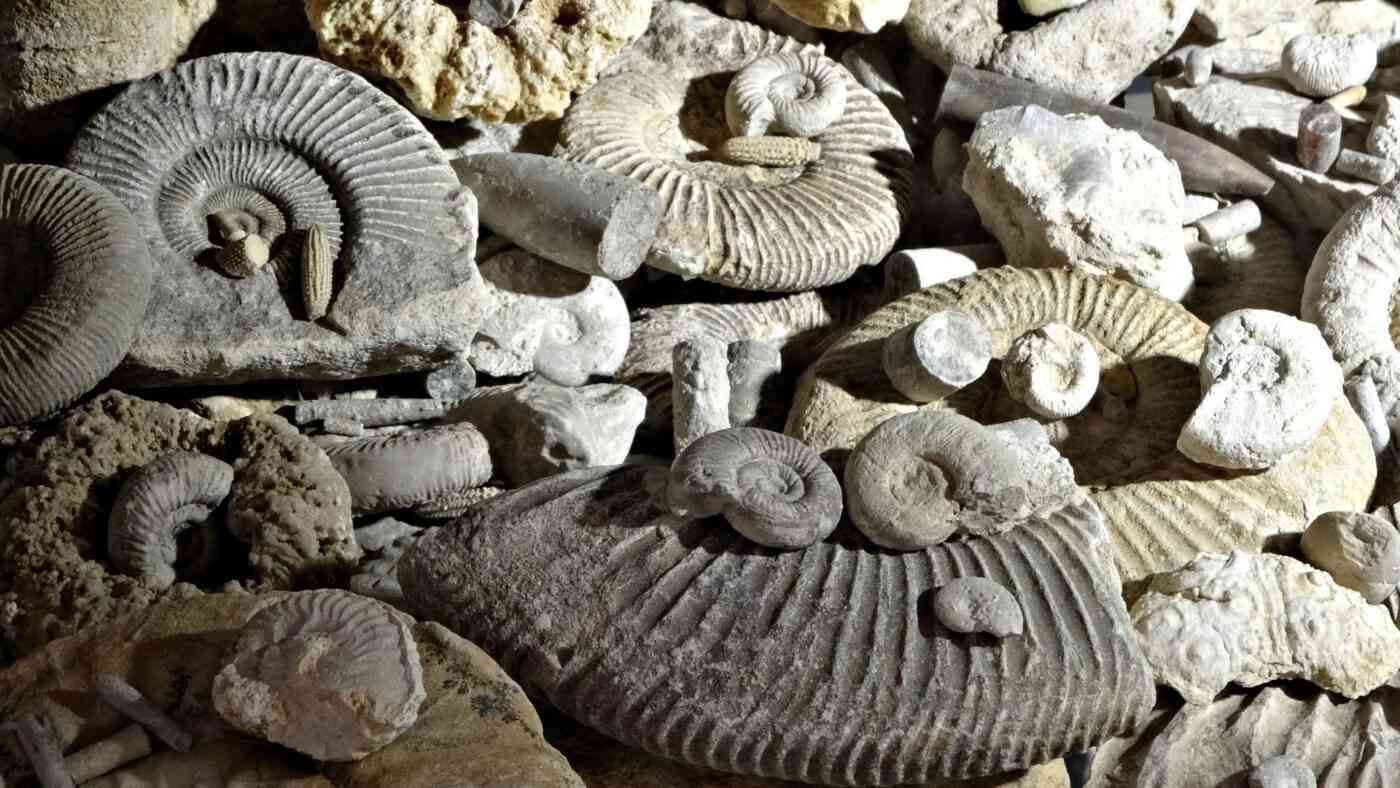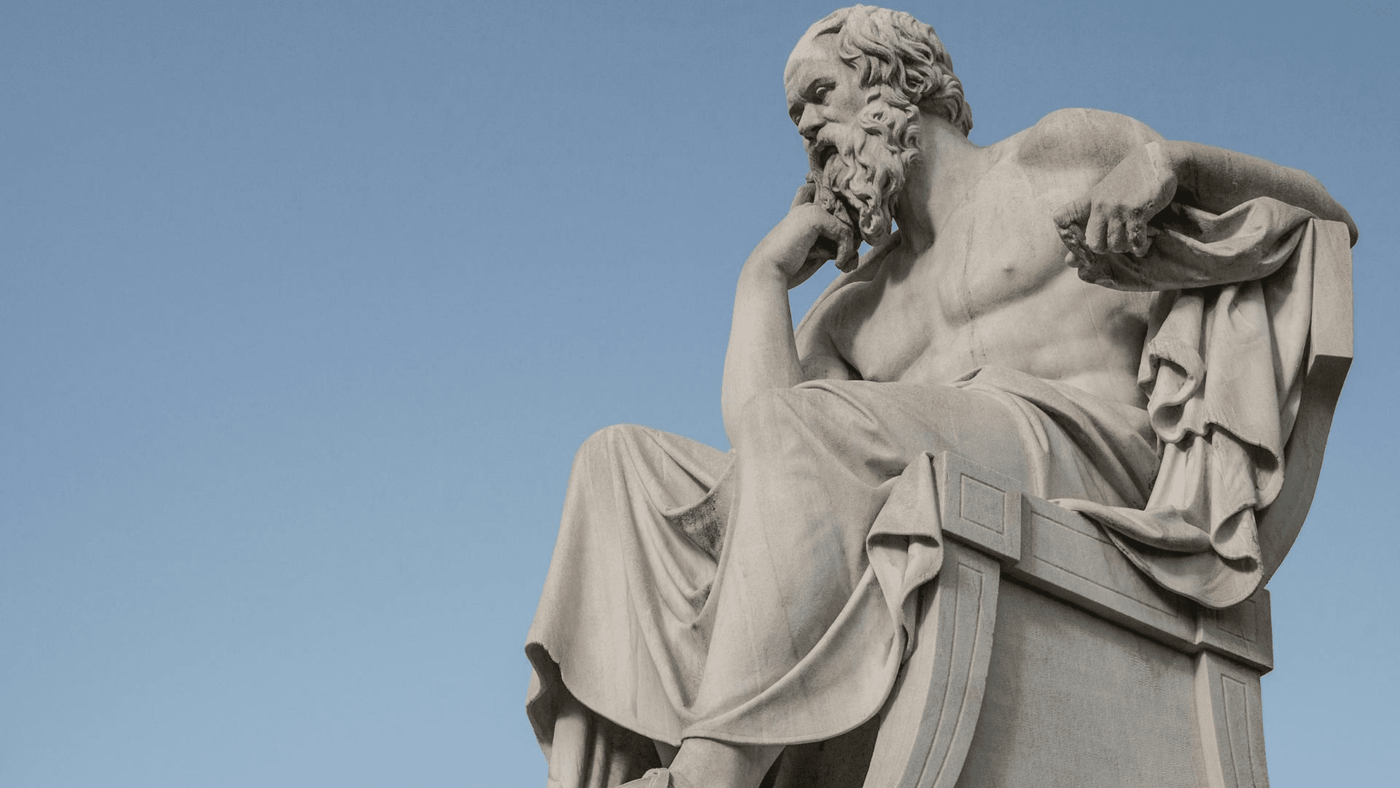Science
How Did Life Rebound on Earth? The Answer Lies Within the Rocks
23 February 2026

The common and irreversible demise of authorities has already become a cliché. However, the truth may be more complex than may seem at first glance. What if role models are actually being redefined, forging a new paradigm?
Societies have always needed authorities to represent important, indisputable values and serve as role models. Their personifications changed throughout history, initially taking the form of Greek sages, Roman gods, or Christian saints.
In the Enlightenment, the traditional perception of authorities such as political or military leaders faced scrutiny for the first time. Previously revered rulers were knocked off their pedestals (compare the collapse of the three great monarchies after World War I). Consequently, the general trust in role models was undermined. The following decades brought about popular culture, gossip, and investigative journalism. However, it has been digitization and social media that have driven the final nail in that coffin. The everyday life of respected, admired people ceased to be a coveted secret.
If leaders such as King Alexander III of Macedon or Prime Minister Winston Churchill lived in the internet era, they would probably fail in rising to power. Alexander was (in)famous for terrifying fits of rage, severe alcoholism, and bisexualism (which was actually not condemned in antiquity), while Churchill was an active drug addict. Lucky for them, the information about those controversial inclinations hardly ever left their closest circles.
Of course, politicians are not the only case in point. Philosopher Jean-Jacques Rousseau made a great figure of the Enlightenment and wrote a renowned book on upbringing. The splendid reputation did not prevent him from abandoning his own family – a wife and five children. Painter Vincent Van Gogh was an alcoholic suffering from schizophrenia and the persecution complex. Austrian writer Stefan Zweig, immensely popular before World War II, had exhibitionistic tendencies. Nonetheless, all three were well-established authorities of their times. If they lived today, their flaws would probably be exposed and their behavior stigmatized. Consequently, the public would knock them off their pedestals before they even reached their top.
The history of authorities dates back to the beginning of mankind. From hunter-gatherer communities to modern states, every society has applied the concept of authority, however defined. Human groups naturally trust individuals or institutions that serve as guarantees of the established law and order. Moreover, role models represent an important set of values universal for their particular communities.

Interestingly, numerous behavior patterns attributed to authorities were common to several cultures and handed down through generations. The consolidation of those values, however, is another story. Traits, such as respect for elders, loyalty, friendship, love, or devotion, were accepted without objections. Other factors, for example unconditional obedience to parents, have failed to stand the test of time. The gradual loss of the caretaker’s authority as the child matures actually epitomizes the transformation of any role model in the last few decades. The Western world has gone the way similar to growing up: from creating and adoring ideals to their gradual demystification.
Authorities stabilize extant social bonds. They are recognized and trusted, have prestige, and typically (albeit not always) display leadership qualities, intelligence, and charisma. In the distant past, however, important public, social, or religious functions created authorities by default. For instance, priests often served as leaders of local communities. Rulers did not even need to make any special effort to win that status – their mere presence and power was enough. An accurate example is Franz Joseph I (1830-1916), whose cult remains vivid in the memories of the Galician population. Objective reviewers of the emperor’s achievements admit that he successfully liberalized his country, ensuring equal treatment of various nationalities. However, historians also point out that his serious mistakes led to the outbreak of World War I.
The “anointed authorities” model lasted until common education set in, forced by the Industrial Revolution. The global transition began in 18th-century England and spread throughout Europe during the following century. At a minimum, machine operators had to be literate and know the basics of mathematics (which was not necessary in farming, for example). Those workers duly reached for high-circulation newspapers, the radio and, later, television. The resulting mass media culture started to undermine authorities, especially those linked with rule and power – very shyly at first, yet with growing intensity down the line. Thus, the root cause of common education lies in the blatant greed of factory owners. Whether we like it or not, that was the way capitalism was born.
Consequently, entire societies obtained access to the knowledge and information previously only afforded to small and exclusive groups wielding power. The new possibilities gave rise to political movements promoting socialism and equality. “Anointed authorities” were demythologized as proved by subsequent revolutions, including the bloodiest of them all – Russia’s October Revolution. Rulers lost their godlike status; the times of “revealed truth” were over. As soon as people better understood the principles governing the world, their fear of power was replaced by doubt and then rebellion.
Paradoxically, the revolutions, wars, and crises of the early 20th century produced authoritarian states which tried to restore the uncritical acceptance of role models. Leaders such as Mussolini, Hitler, Lenin, and Stalin stepped out as new authorities and – astounding as it may sound today – proved partially successful. Skillful propaganda combined with a one-party system and banned criticism did create new “idols.”
Fascists, Nazis, and communists all used the same pattern: fear of a bigger power. In many cases, however, it transformed into an authentic fascination. Manipulated German crowds truly admired Hitler as the one who turned their country into a “superpower.” When Stalin died, millions of Russians sincerely mourned his passing as an invincible leader who had defended their homeland against the Nazi enemy. Naturally, manipulating literate societies took more effort than managing the fear of uneducated masses earlier on. The mechanism remained the same though: leaders cleverly employed the collective fears and phobias as well as… their own promises.
The fall of totalitarian systems – after 1945 in Western Europe and after 1989 in the East – brought about freedom of speech. However, freedom needed messengers, and it found them in the mass media. Even the disdained yellow press played a role. Newspapers spread information about the politicians’ backstage life, fueling scandals such as Watergate. The illegal actions of U.S. President Richard Nixon and his administration saw the light of day after an investigation by the journalists of The Washington Post. The resulting bad publicity ultimately forced Nixon to resign in 1974. Watergate made one of the biggest scandals discovered by the media at the time and a milestone on the path to rejecting imposed authorities.
The ultimate breakthrough in the demystification of role models was the internet, especially social media. Books, newspapers, movies, and television lost their collective status as the exclusive source of information about Very Important People. Not only celebrities, but also leaders – including the Pope – took up direct online communication with societies. The atmosphere of mystery which used to surround authorities has now dispersed for good. Institutions have also lost their immunity after it turned out that their reports could be scrutinized, their justifications undermined, and their decisions questioned.
What sounds obvious today remained impossible in the past. Societies had to accept the top-down narrative whether it was right or wrong. Authorities decided what “their” citizens should think, do, or even dream about, and the masses could only comply. The contact was unilateral.
The internet caught the old authorities into a trap. Their demystification has become easy and the tools to verify their declarations and promises grow more effective every day. A famous singer can no longer fake her support for animal conservation once pictured in a fur coat or neglecting her own dog. Nobody takes seriously the calls for responsible driving uttered by an actress with a drunk driving accident on her record. A Catholic fundamentalist leading a double life with a lover behind his wife’s back loses popular trust in an instant.
Entertainers, politicians, researchers – the vivisection of human weaknesses has become omnipresent. Societies no longer accept narratives uncritically. Instead, they formulate expectations and then eagerly verify, criticize, and disclose. Is this fishnet completely tight? Of course not. Still, the risk of exposure remains high enough to encourage many public figures to act more decently. Photographs showing the world-famous movie producer Harvey Weinstein handcuffed and sentenced to 39 years of imprisonment for sexual offenses became a turning point for the entire movie making industry. As a result, many previously accepted actions are now publicly condemned.
We recommend: Unforgivable Weakness or Forgotten Strength? The Hidden Meaning of Pain
Religious and political leaders, worshiped stars, and renowned researchers have all lost their VIP status. Nevertheless, does this herald the irreversible demise of authorities? Not necessarily; the psychological mechanism of displacement is still alive and well. Unable to find role models in their immediate surroundings or cultural circles, people reach further – hence the Western fascination with religions of the Far East and esotericism. Interestingly, this tendency seems immune even to scandals. When the 14th Dalai Lama asked a child to suck his tongue, the controversial (to say the least) incident was quickly hushed up. Some defended the Tibetan leader by citing local customs, evidently forgetting the trauma to which the boy was exposed. It goes without saying that a Western leader would be strongly condemned for any similar behavior.
The timeless human need to have a role model is also fulfilled by “niche authorities.” In other words, we admire individuals who build a credible image of themselves as specialists. However, that applies only to their narrow fields. Unlike the “flawless” authorities of the past, they remain average or even weak in other spheres of life. It is their eminent professionalism that wins them common appreciation. Social campaigner Jerzy Owsiak elicits broad recognition for his charity work and yet sparks controversy for his statements on everyday life or his fundraising methods. Distinguished humanitarian Janina Ochojska sharpened her rhetoric upon entering politics, which has brought her numerous opponents.
Having turned their backs on imposed authorities, contemporary people began to notice seemingly ordinary individuals with incredible or heroic stories on their record. Social worker Irena Sendler had saved over 2,500 Jewish children from the Holocaust. Afterwards, she remained unknown for decades; even her relatives and neighbors lived unaware of what she had done. Only in 2000 did an amateur high-school theater from the USA bring her activity to light. This type of “quiet authorities” will probably survive, along with the new meaning of ‘role model’. Consequently, we may well restore the long-forgotten ancient definition of ‘authority’.
In the 1st century CE, Roman philosopher Seneca the Younger wrote: “Cherish some man of high character, and keep him ever before your eyes, living as if he were watching you, and ordering all your actions as if he beheld them. […] Choose a master whose life, conversation, and soul-expressing face have satisfied you; picture him always to yourself as your protector or your pattern.”
Today, after twenty centuries of top-down authorities, this placid description by the wise Stoic seems particularly accurate and appealing. The contemporary redefinition of role models may herald a return to the healthy perception of their function as outlined by Seneca. Instead of compromising the power of authorities, their human image actually makes them stronger and more authentic. In so doing, demythologization has become an important sign of constantly broadening freedom.
Translation: Eleonora Joszko

Science
22 February 2026

Humanism
22 February 2026

Zmień tryb na ciemny